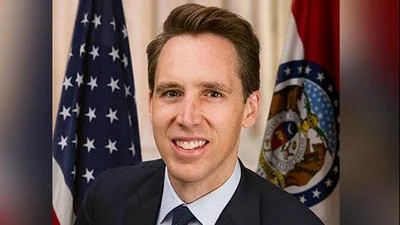Rep. Jason T. Smith, U.S. Representative for Missouri's 8th District | Congressman Jason Smith Official U.S. House headshot
Rep. Jason T. Smith, U.S. Representative for Missouri's 8th District | Congressman Jason Smith Official U.S. House headshot
As someone who believes that the best government is closest to the people, frustration mounts over the growth of federal government since the nation's founding nearly 250 years ago. "Whenever the Left is in control of Washington, they do everything they can to force their values on the rest of America – and the biggest tool they have is the Washington bureaucracy," reads a statement reflecting this sentiment. Concerns include attempts to ban gas-powered vehicles, dictate land use, and decide appliance purchases.
The involvement of unelected bureaucrats in enforcing such policies is noted as a key factor. A recent Supreme Court decision has provided what some see as a tool to curb these perceived overreaches. The case, Loper Bright Enterprises v. Raimondo, ended the Chevron doctrine, which had allowed executive agencies significant leeway in interpreting laws. "The landmark decision by the Supreme Court takes legislative power away from agencies and makes clear that Congress writes the law, the executive branch enforces it, and the judiciary interprets it."
Federal agencies' interpretation of wetlands regulations under rules like Waters of the U.S. has been cited as an example of overreach. These regulations could designate temporary rain-filled ditches on private property as protected wetlands, complicating land use for ranchers, businesses, and homeowners. With Chevron's end, there is now greater optimism about challenging such designations in court.
The ruling also impacts how bureaucrats and environmentalists utilize the Endangered Species Act (ESA). Decisions regarding species protection have been criticized for ignoring community impacts. Examples include blocking timber harvesting due to ESA listings of species like the northern long-eared bat and certain crayfish. Critics argue these decisions are more about control than conservation.
The broader implications extend beyond environmental regulation. Potential legal battles could arise over issues such as gun control measures, student loan forgiveness programs, and energy policies from current administrations. "While this court case is incredibly important," warns one statement, "Congress cannot get complacent; the legislative branch must do its part to fight back against big government." Advocacy continues for policies aimed at reducing governmental influence on Missouri farmers, families, and small businesses.




 Alerts Sign-up
Alerts Sign-up